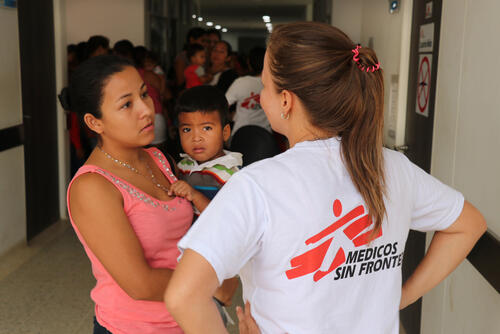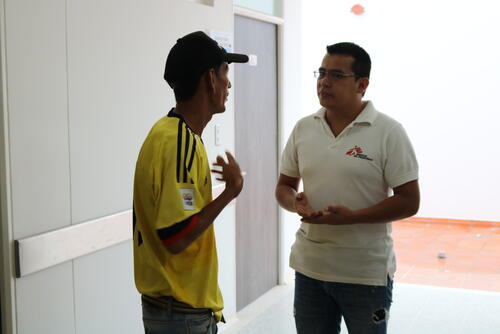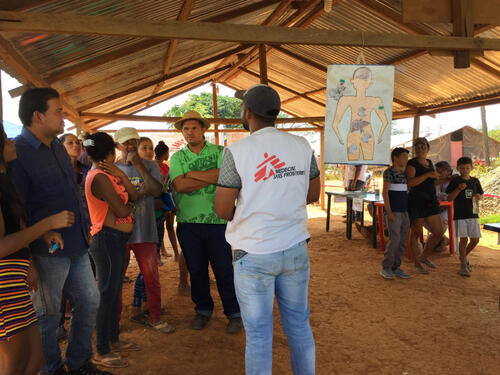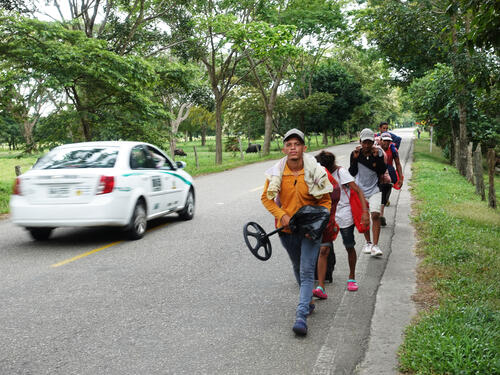Venezuelan migrants face numerous barriers to accessing health services in Norte de Santander, Arauca and La Guajira regions. While in theory people are guaranteed access to vaccinations, safe child birth and emergency care, the medical needs of this group are too large for the Colombian system to meet them. These are some of the stories from that unattended crisis.
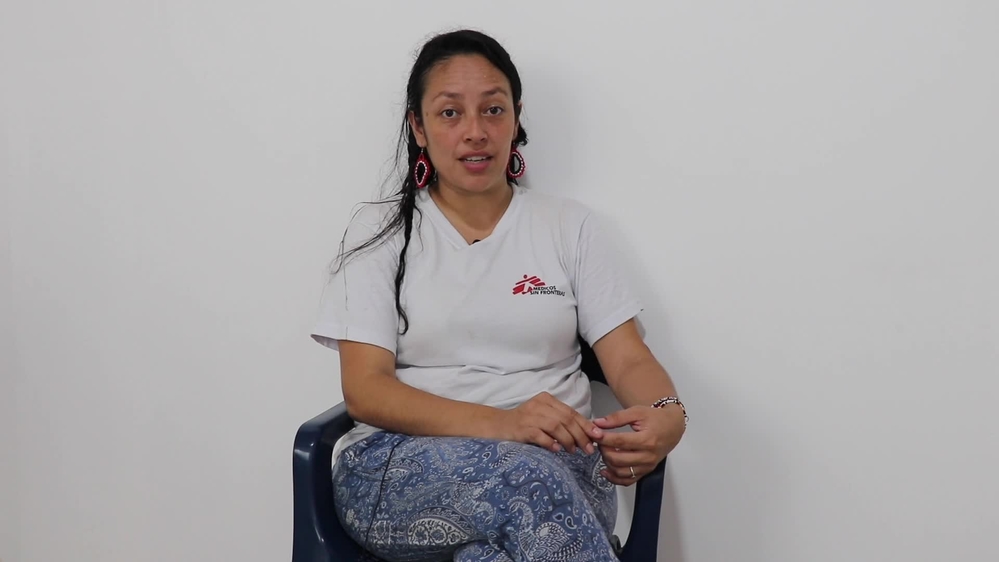
Medical needs of Venezuelan migrants overwhelm the capacity of the Colombian health system
Lack of food forces a family to leave
It was on the third day of eating only mangoes that Poellis Córdoba and her husband realised that it was time to flee Venezuela. After enduring several months of food shortages, which they rationed strictly so that their three small children had something to eat every day, they decided they had to leave the country to survive.
“My husband made a good living as a bricklayer and we lived relatively comfortably. But little by little, the situation worsened to the point that we only had enough money to buy sardines and cornmeal,” explains Poellis. “I remember that in the end we only had enough to feed our children. Then we couldn’t even get that and it was then that my husband arrived with a suitcase full of mangoes. When they were finished, we finally understood that we could not take it anymore.”
“Life here has not been easy”
First, her husband travelled to meet some of his brothers who had migrated a few months earlier to Tibú, a Colombian border town in the regions of Norte de Santander. Seven months later, Poellis arrived with her five-year-old son. And it took another year for them to bring their two older children, aged seven and nine.
Today, the whole family lives in the informal settlement of Divino Niño, a collection of houses with wooden floors, polyethylene walls and zinc roofs, where Venezuelan migrants who cannot pay rent end up.
“Life here has not been easy,” says Poellis. “Sometimes it is really hard for us but at least food is not lacking for the children.”
The poor living conditions and the risk of not getting food are just two of the challenges that Poellis and her family face. Recently, her youngest child developed a small inflammation in his stomach.
“As it did not seem serious I decided to take him to the Médecins Sans Frontières clinic because they do not treat Venezuelans in the hospital here unless it is an emergency,” Poellis says.
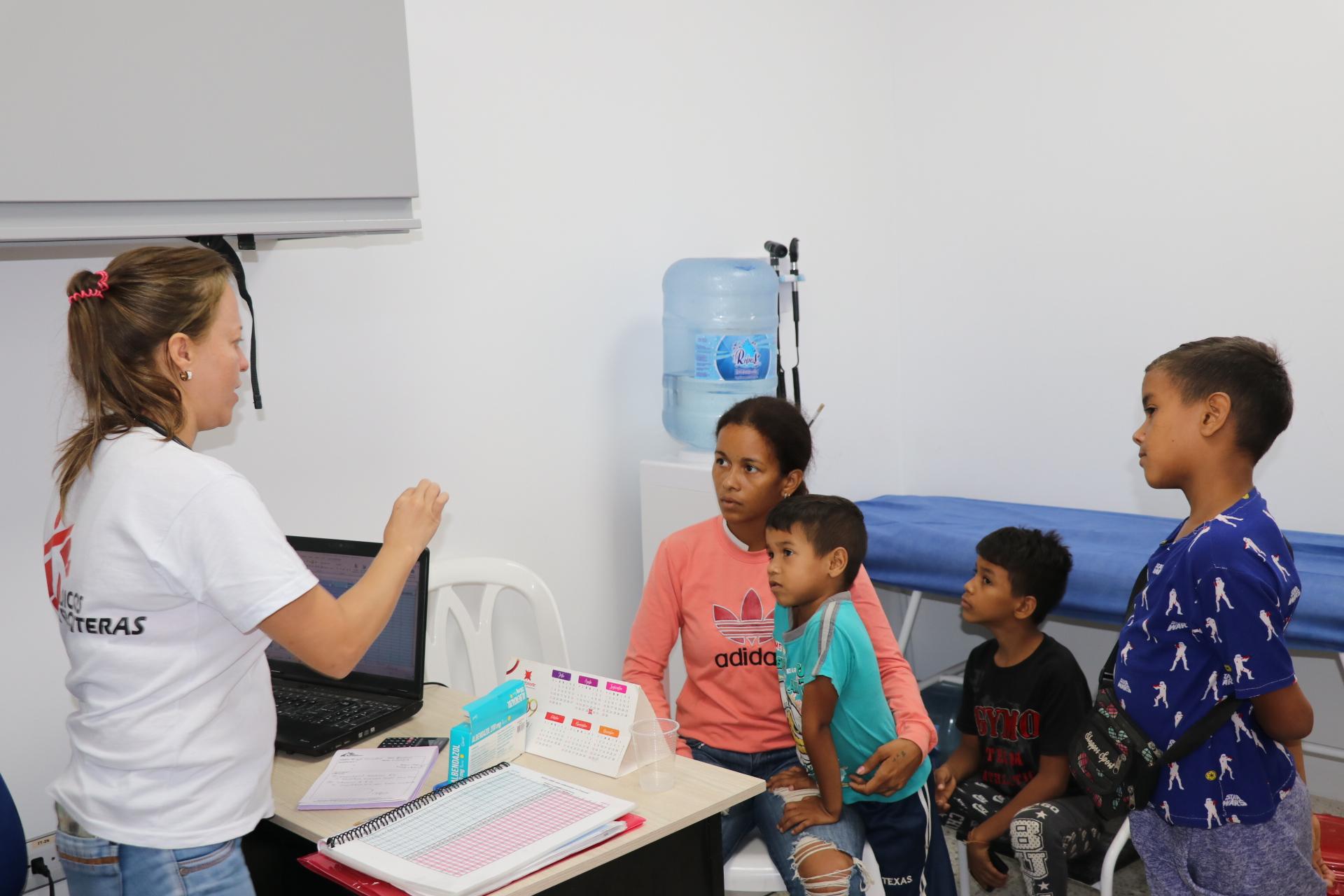
Between November 2018 and May 2019 at MSF’s primary healthcare centre in Norte de Santander:
12,000
12,
4,600
4,6
2,500
2,5
MSF plugging the gaps in medical care for Venezuelans in Colombia
In the border regions of La Guajira, Norte de Santander and Arauca, state-run medical services are not open to Venezuelan migrants, except for emergencies, vaccinations and child birth. As a result, between November 2018 and May 2019, over 12,000 Venezuelans used the primary healthcare and mental health services provided by Médecins Sans Frontières (MSF).
This is the case with Marilyn Díaz, who crossed from Venezuela to Tibú a year ago and gave birth to her second daughter a few days ago at a local hospital. After being discharged, she realised she had to go to MSF for drugs and postnatal consultation.
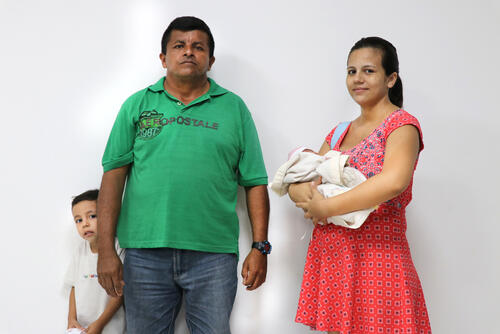
Among the migrant community, women and children are particularly vulnerable to the lack of access to health services. Between November and May, nearly 40 percent of patients see at the MSF clinics were under five years of age and teams conducted almost 2,500 prenatal care and more than 4,600 family planning consultations.
The most frequent health concerns in Venezuelans treated by MSF are:
- skin allergies;
- respiratory and urinary tract infections;
- gynaecological conditions; and
- diarrhoea and intestinal parasites in children under 14.
In addition, almost 1,000 people have received mental health consultations. The main symptoms our teams see are anxiety and depression caused by the conditions of migration, difficulties in finding work and family separation.
Crisis situation for Venezuelans needing healthcare in Colombia
“The lack of access to basic and specialised health services for Venezuelans in Colombia is a health crisis that needs more attention from the international community,” says Ellen Rymshaw, MSF head of mission in Colombia. “The medical needs of these people have overwhelmed the Colombian health system, which doesn’t currently have the resources or personnel to attend to them. Due to these limitations, many migrant patients have not been able to receive timely attention in hospital emergency rooms, despite being entitled to this by law.”
“We are calling for greater involvement from the international community to facilitate humanitarian assistance and improve access to healthcare for Venezuelans through direct support to hospitals,” says Rymshaw. “This is a crisis that urgently needs to be addressed.”
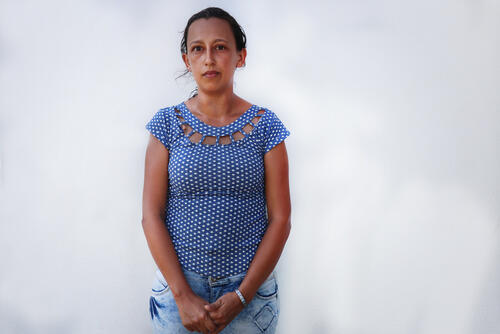
No money for a bus ride or for vitally-needed medicine
It is not only the 350,000 Venezuelans who, according to official calculations, reside in these three border regions that require medical services. They are joined by the thousands of people who cross the border every day in search of medical care and medicines, in many cases for diseases that are not considered emergencies, but that require strict treatment which they cannot get inside Venezuela.
Yamileth Gómez travelled more than four hours to reach Colombia from Seboruco, in Táchira state (Venezuela), in search of treatment for hyperthyroidism, which she was diagnosed with in January.
“In Venezuela, the medicine I need is not available and here it costs me more than what I can afford at the moment,” says Yamileth. “I even had to come here by asking for a ride because I did not have money for a bus ticket.”
Yamileth used to be a teacher but she had to stop working because of voice problems in addition to other symptoms such as headaches, tachycardia (unusually fast heartbeat), vomiting and diarrhoea.
“MSF will help with the medication,” Yamileth says. “I hope to get it so that I can return to a normal life.”
The stories of Poellis, Marilyn and Yamileth show the challenges that Venezuelan migrants are forced live through on the Colombian border. After fleeing the crisis in their country that made scarcity routine, they arrived in a country that does not offer them opportunities for safe housing, work or comprehensive healthcare.
The limitations imposed by the public health system and the economic vulnerability in which migrants live make access to medical care a distant and uncertain possibility that puts people’s well-being on hold.



